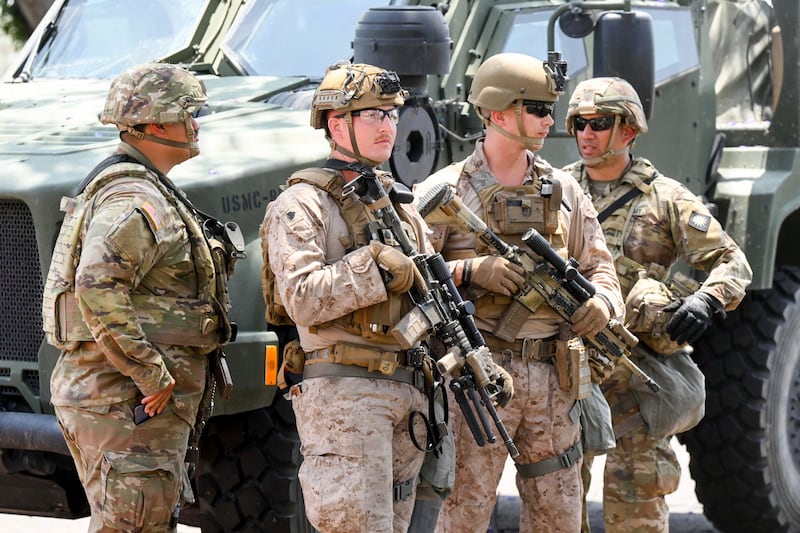- War Secretary Pete Hegseth is directing all troops to be clean-shaven — or face discharge.
- The War Department has signaled plans to eliminate shaving waivers for male troops.
- Hegseth has prioritized troop appearance and fitness levels.
If whiskered Civil War Gens. Robert E. Lee or Ulysses Grant were serving in today’s military, they would be put on notice: Lose the beards.
Secretary of War Pete Hegseth is directing all troops to be clean-shaven — or face discharge from the ranks in a year’s time.
“The grooming standard set by the U.S. military is to be clean shaven and neat in presentation for a proper military appearance,” wrote Hegseth in a recent Department of War release.
But for many men serving in the American armed forces, the grooming directive goes beyond mere personal style.
Most shaving waivers are for troops diagnosed with pseudofolliculitis barbae, aka “razor bumps” — a fairly common chronic skin condition that disproportionately affects Black men.
It occurs when curly or thick hairs curl back into the skin after shaving, leading to inflammation.
About 60% of Black men are affected by the skin condition, according to the American Osteopathic College of Dermatology.
Razor bumps can cause itching, discomfort and, in severe cases, scarring.
The first recommended remedy for razor bumps is, no surprise, to grow a beard. But when that’s not an option — or when home remedies prove unsuccessful — a dermatologist is often enlisted to develop more aggressive treatments.
Traditionally, troops managing razor bumps have often been able to receive a medical shaving waiver.
But that practice appears to be ending.
In a recent memo, Hegseth directed all military departments to implement more rigid grooming standards for facial hair — although there was no mention of mustaches.
Military medical officers, ordered Hegseth, will provide a written recommendation concerning a service member’s shaving waiver to his respective commander.
Service members granted shaving waivers will then be required to participate in a medical treatment plan.
And finally, a service member who requires a shaving waiver after more than a year of medical treatment will be separated from the military.
“I have full confidence in our leaders at all levels to provide an accurate assessment of whether retention is appropriate,” wrote Hegseth, before adding: “The Department must remain vigilant in maintaining the grooming standards which underpin the warrior ethos.”
The memo does not specify what treatments the military would offer for troops affected by the new policy or if it will pay for those treatments.
It is also unclear if the new policies include exemptions from shaving for special forces troops who are in operational settings or soldiers stationed in the Arctic climates of Alaska, where shaving can pose a medical hazard in the extreme cold, The Associated Press reported.
And some troops in recent years have sought shaving exemptions citing religious traditions.
The Army, for example, amended its guidelines in 2017 after years of beard-exemption requests and legal pressure from Sikh soldiers seeking to preserve religious traditions while wearing a U.S. uniform, Army Times reported.
Hegseth: ‘Our troops will be fit — not fat’
Hegseth’s recent directive regarding military personnel and facial hair is his latest action to ensure, in his words, “Our troops will look sharp — not sloppy.”
Earlier this year, Hegseth posted a memo ordering a department-wide review of existing standards set by U.S. military branches pertaining to physical fitness, body composition and grooming — including beards.
“We must remain vigilant in maintaining the standards that enable the men and women of our military to protect the American people and our homeland as the world’ s most lethal and effective fighting force,” wrote Hegseth. “Our adversaries are not growing weaker — and our tasks are not growing less challenging.”
U.S. troops, he added on social media, “will be fit — not fat.”


